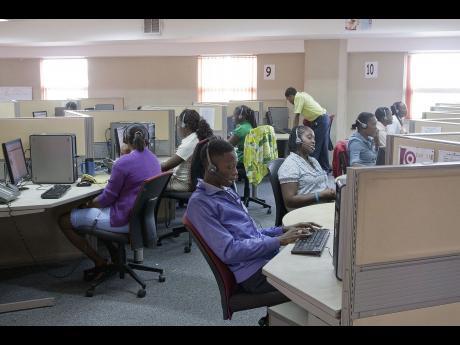Jamaican BPOs seem to have found benefit in work from home arrangements amid the current lockdown. Now the BPO firms lobbying for the creation of the virtual special economic zone. This would require the Jamaican government to amend the laws around SEZs.
Amid the lockdown to mitigate COVID-19 infection, the government issued special orders for the business process outsourcing companies to set up their equipment at employee’s homes.
Virtual SEZs would allow current arrangements to continue and help firms manage the cost associated with sanitation and social distancing protocols, once the government lifts its work from home orders at the end of this month. Essentially, virtual SEZs will turn call center operators and other BPO professionals home into virtual offices.
As of 4th June, the BPO industry was responsible for Jamaica’s 234 cases of a total of 529 COVID-19 cases. To prevent the spread of the virus, BPOs were ordered to be closed for 14 days in April. Except for companies that were involved in healthcare, government, and other utility services.
Considering 32 percent of employees of the BPO sector are still working from home, the sector wants the government to include virtual SEZs in recommended amendments to the Special Economic Zone Act, SEZA. Gloria Henry, president of the Global Services Association of Jamaica, GSAJ, wrote a letter to the prime minister, appealing to make the recommended amendments.
The law is considered cumbersome by the industry. It was reviewed last year and GSAJ passed its recommendations to the government to improve SEZA.
The association is also looking for a carve-out. It will pave way for a virtual special economic zone. It will help the association to create a digitally transformative, future-ready economy for Jamaicans who are working at home, and give us access to several business segments in e-commerce services, Henry suggests.
In Jamaica, 91 BPO operators employ nearly 40,000 workers. Henry suggests e-commerce can deliver higher profits for the BPO sector and add new jobs. This is partly the reason GSAJ has recommended to build at least 20 percent of BPO operations in virtual space.
This will maintain a balance for BPO operators and give more flexibility for staff who want to work from home. GSAJ is also seeking an extension of approval for SEZ companies that will allow them to keep computer equipment outside of the zone. It might take time for the virtual SEZ to come to effect, but companies will benefit if it is implemented by the end of the calendar year, Henry hinted.
The Jamaican BPO sector supports a large number of jobs and receives large foreign investments. Thus, it’s a crucial part to keep the economy running. The government intends to increase its efforts to highlight Jamaica as a business destination for business process, knowledge process, and global services operations, Andrew Holness, Prime Minister of Jamaica, indicted in a press brief on Monday, 1st June.
The BPO industry has been hit severely across the world due to the complete shutdown of the supply chain and retail. Restrictions imposed by the government to contain the spread of COVID-19 has exacerbated the situation.



